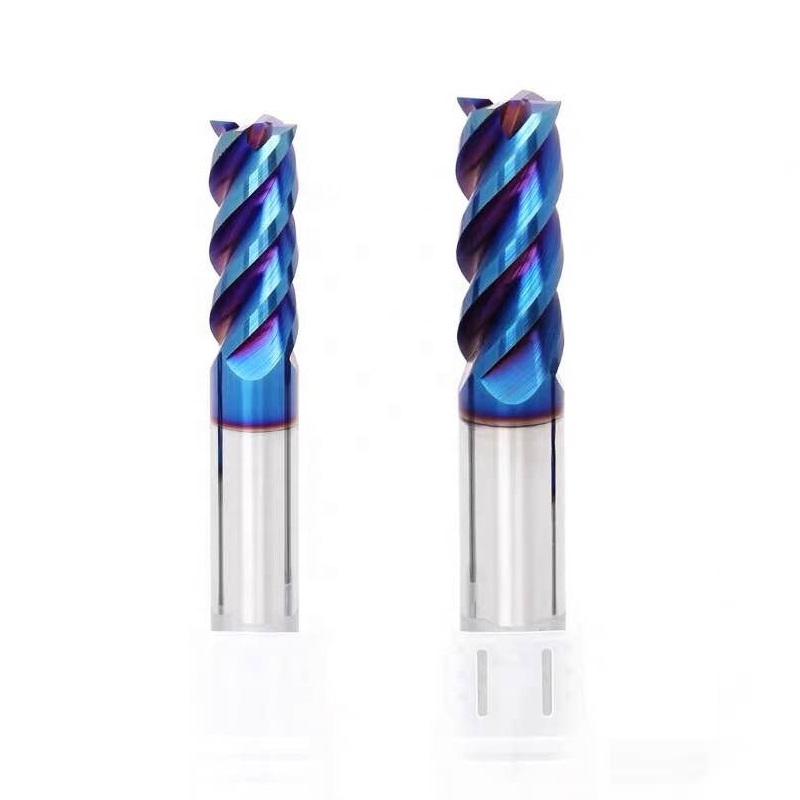End Mills: Precision Tools for CNC Machining and Beyond
 Technical Specifications of End Mills
Technical Specifications of End Mills
Shanghai Easydrill’s end mills are engineered for durability and precision. Key features include:
- Material:
- Carbide: For high-speed machining and hardness (HRC 55+).
- High-Speed Steel (HSS): Cost-effective for general-purpose milling.
- Cobalt-Enhanced HSS (HSS-E): Improved heat resistance for tough alloys.
- Coatings:
- TiN (Titanium Nitride): General-purpose coating for reduced wear.
- TiAlN (Titanium Aluminum Nitride): High-temperature resistance (up to 900°C).
- AlCrN (Aluminum Chromium Nitride): Ideal for non-ferrous materials like aluminum.
- Flute Types:
- 2-Flute: Optimal chip evacuation in soft materials (e.g., aluminum).
- 4-Flute: Balanced strength and finish for steel and harder metals.
- 6+ Flutes: High-precision finishing in aerospace alloys.
- Diameter Range: 1mm to 25mm, catering to micro-detailing and heavy-duty milling.
- Helix Angles:
- 30°–35°: For hard metals (e.g., titanium).
- 45°–55°: For soft materials and efficient chip removal.
- Shank Types: Straight, Weldon, or BT/HSK for CNC machine compatibility.
- Speed Recommendations:
- Aluminum: 500–1,500 RPM
- Steel: 200–400 RPM
- Stainless Steel: 150–300 RPM
- Compatible Materials: Metals (steel, aluminum, titanium), plastics, composites, and wood.
Applications of End Mills
End mills are versatile across industries:
- CNC Machining: Create intricate parts for automotive, aerospace, and electronics.
- Mold Making: Sculpt detailed cavities in injection molds with ball-nose end mills.
- Aerospace: Machine lightweight alloys like titanium and Inconel for engine components.
- Automotive: Mill engine blocks, transmission parts, and custom fittings.
- Woodworking: Craft decorative engravings and joinery with specialized end mills.
- Medical Devices: Produce precision surgical tools and implants from biocompatible materials.
Advantages of Using End Mills
End mills outperform conventional tools with these benefits:
- Precision: Achieve tight tolerances (±0.01mm) for complex geometries.
- Versatility: Cut in any direction (axial, radial, or contouring).
- Efficiency: High material removal rates (MRR) reduce machining time.
- Durability: Carbide and advanced coatings extend tool life by 3–5x.
- Surface Finish: Produce mirror-like finishes with minimal post-processing.
- Adaptability: Available in square, ball-nose, and corner-radius designs for diverse tasks.
Post time: May-07-2025